Thursday, January 5th, 2017
Kehinde Wiley at the Petit Palais
Much of the press about the show, and even the information presented at the museum itself, indicates that Lamentation contains ten works by Wiley. In fact, there are only nine - three oil paintings and six stained glass windows. But no matter - they are well worth a visit to this beautiful museum, which is located just off the Champs Elysées.
© Entrée to Black Paris
© Entrée to Black Paris
From the Petit Palais information card:
Kehinde Wiley continues his exploration of religious iconography at the Petit Palais.
By focusing on the story of Christ and his relationship with his mother, the Virgin Mary, he is initiating a thought-provoking conversation about masculinity.
The previously unseen series of six stained glass windows exhibited at the heart of the large format gallery center on the figure of a young Christ: the artist moves beyond the religious context to explore the expression of his vulnerability - the vulnerability of the dead child and the adult Christ.
The six stained glass windows are displayed in a hexagonal structure at the rear of the "Large Format Gallery." They are found between the majestic The Funeral Day, a Scene from Morocco by Jean-Joseph Benjamin Constant and several works with religious themes, such as Gustave Doré's The Ascension and William Bouguereau's The Virgin with Angels.
© Entrée to Black Paris
Each window portrays an adult holding a child. Though three of the adults are men, the names of these works indicate that the man represents Mary, Mother of God. In the works entitled Mary, Comforter of the Afflicted I and Mary, Comforter of the Afflicted II, the man carries a dead child.
2016 Stained glass and aluminum frame
© Entrée to Black Paris
Downstairs, a room is dedicated to three monumental oil paintings that complement the stained glass windows.
© Entrée to Black Paris
From the Petit Palais information card:
Together these works offer a bodily representation of the Christ figure. By choosing to focus on the body, the most concrete and vulnerable, if not animal, aspect of his "personality", Kehinde Wiley takes a highly contemporary approach to reviving the debate of the divine or human nature of Christ, the eternal dichotomy between body and mind.
The signature piece of the exhibition, Lamentation, is found here.
2016 Oil on canvas
© Entrée to Black Paris
Wiley has indeed focused on the "body of Christ" in these works, rendering each subject with anatomic precision.
2016 Oil on canvas
© Entrée to Black Paris
In Christ after Lady Macbeth I and Christ after Lady Macbeth II, one can easily imagine that the Christ figure was a bodybuilder.
2016 Oil on canvas
© Entrée to Black Paris
2016 Oil on canvas
© Entrée to Black Paris
Only a few days remain to see this exhibition. It closes on January 15.
Lamentation
Petit Palais
Avenue Winston Churchill
75008 Paris
Telephone: 01.53.43.40.00
Internet: http://www.petitpalais.paris.fr
Hours: Tuesday through Sunday from 10 AM to 6 PM. Closed Mondays.
Entry to the Kehinde Wiley exhibition is free.
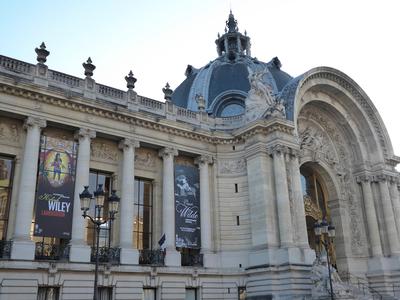
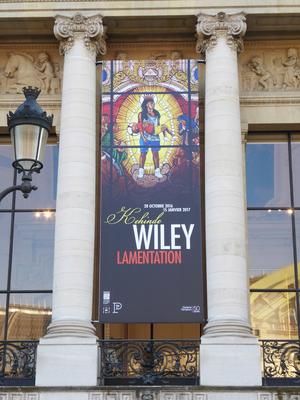
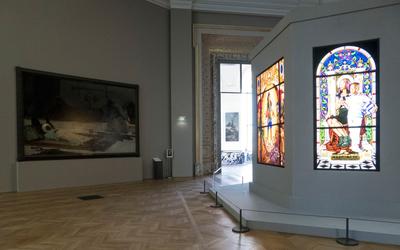
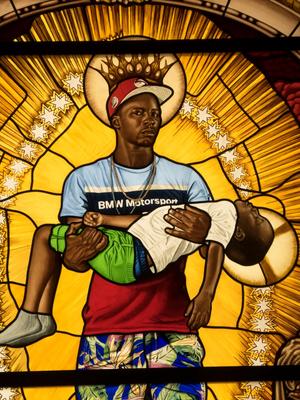
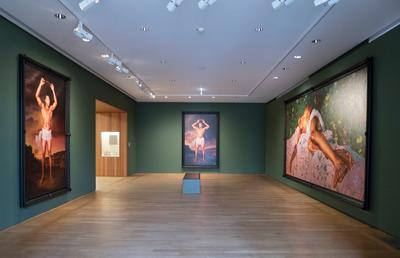
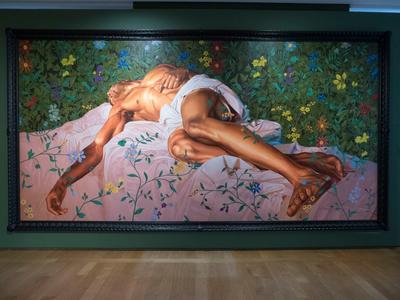
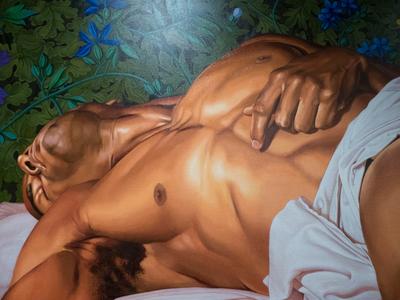
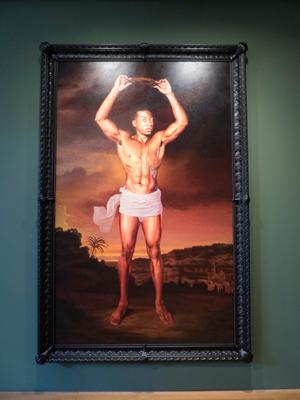
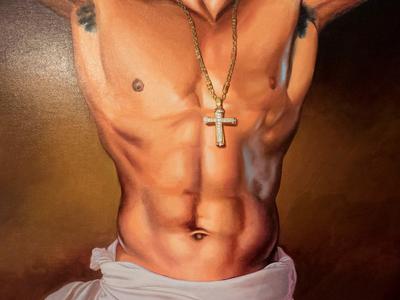

 Our Walk: Black History in and around the Luxembourg Garden - Click here to book!
Our Walk: Black History in and around the Luxembourg Garden - Click here to book!